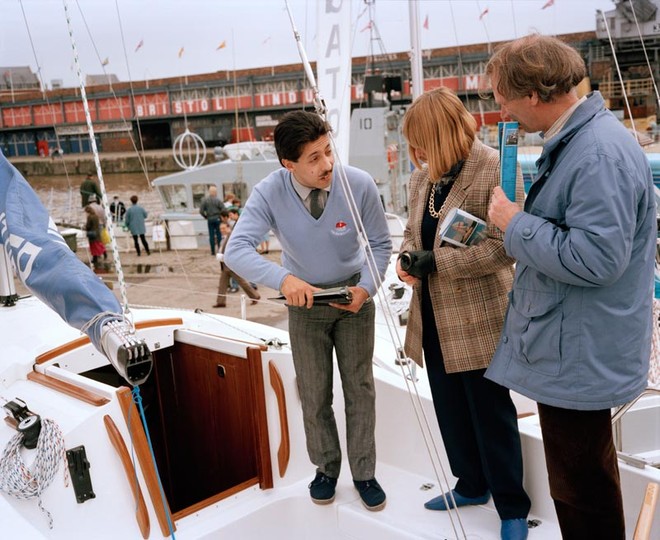Selling your boat for the best outcome - Seven steps
by Des Ryan on 21 Aug 2011

Selling your boat - Build confidence by providing a survey and pointing out faults SW
So you want to sell your boat, and you want the best price possible. Of course, but with the current international economic turmoil and a struggling marine industry, how can you tell the best way to go about it? Here are seven steps to getting the best return.
Selling a boat is certainly not as easy as putting up a sign. Some things just don't change, no matter the state of the economy, and the following are some suggestions for maximizing the proceeds and shortening the time your seaworthy joy stays on the market.
1. Try not to sell at the end of the season:
It may make sense on your end to sell at the end of summer. Unfortunately, the same may not hold true for buyers. If you do need to sell at that time, then it might make sense to offer to pick up the storage, mooring or marina costs for the winter season.
2. Find the best sales pitch:
Don't be mean about the promotion that it will take to sell the boat. Potential buyers can't think about your boat unless they know about it. Cast a wide net through multiple classified ads, online advertisements and on forums that might deal with your particular brand of boat. Some of these will be free.
When posting online, take the time to compose photographs that display your boat in the most attractive way possible. If you don't feel up to the task, spend the extra money it takes to hire a professional photographer. Their expert eye could make a big difference.
3. Then get a broker:
Finding a specialized broker could help speed the sale and remove a lot of the hassle, but it doesn't substitute for the efforts that you make yourself. They will earn their fee when it comes to negotiation and the paperwork involved in the sale, even if they don't originate the lead.
4. Little things may mean a lot:
While the 'big' characteristics of your vessel (size, age, horsepower) will be what garners serious interest, the little touches and accessories may be what close the deal. Amenities count, so be sure to emphasize unusual add-ons such as fish finders and radar.
Just as you would with a house when potential buyers pay a call, scrub and polish your boat until it sparkles. Displaying it in the most pristine and attractive way possible could help you bargain for a better price and may be what pushes an on-the-fence buyer to commit.
5. Research, research, research:
Before selling your boat, make sure to research what comparable makes and models are selling for. Particularly in a chaotic and changing market, what you think a boat should be worth may not reflect what buyers are willing to pay at the time you are selling it. At an unreasonable price, it may sit on the market for a long time.
6. Don't hide the flaws:
Pointing out the disadvantages of the boat will reassure your potential buyers that your boat's good points are real.
We all know what it is like to see a sleazy car salesman skirt around a vehicle's defects. Be upfront about what items may need repair, upgrades or a touch-up. These flaws will eventually be discovered, and any sense of 'dishonest' could scare off a potential buyer.
7. Get a survey:
A survey by a reputable marine surveyor, which should cost less than $1000, will reassure your potential buyer in the first place that there are no hidden problems with your boat. They may decide to get their own survey, but that first survey may just be enough to make them make a private commitment to purchase.
Remember that a boat sitting waiting for sale is gobbling up money as it waits - in maintenance, in mooring or marina fees, in insurance and registration. So once having decided that this is the time to sell, give it your best shot and don't leave any stone unturned. Better a quick sale at a lower price than have your equity ebbing and your frustration growing while you wait and wait for a sale that may never come.
If you want to link to this article then please use this URL: www.sail-world.com/87518